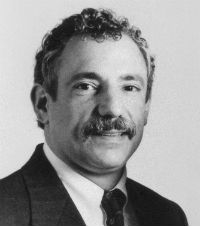
|
|
Events
 70th Reunion
70th Reunion
Tuesday, 6/11/202412:00 pm until 4:00 pm
Tavistock Country Club
Friends, children, spouses invited to help us celebrate our last reunion
Send $35 to Mark Sibley, 134 Cider Press Drive, Mullica Hill, NJ 08062 by June 1. Alumni Society Trustee MeetingsThird Tuesday of every month September through May/June, except December. Contact us for the location.
Alumni Society Trustee MeetingsThird Tuesday of every month September through May/June, except December. Contact us for the location. |
|
|
|
|
|
| 
|


Shop Spirit Wear

2018 Lifetime Achievement Award Recipient
Jonathan R. Lax
Back to Recipients
 Jonathan Lax graduated from Haddonfield Memorial High School in 1967. Although He was a very good student at HMHS, near the top of his class, and actively participated in extra-curricular programs, his real passions were business and technology. After graduation, while attending Swarthmore College, he created and ran a small mutual fund, which focused on non-defense-industry-related investments. He achieved brief national fame when the fund was the subject of a favorable front-page story in the Wall Street Journal. Jonathan Lax graduated from Haddonfield Memorial High School in 1967. Although He was a very good student at HMHS, near the top of his class, and actively participated in extra-curricular programs, his real passions were business and technology. After graduation, while attending Swarthmore College, he created and ran a small mutual fund, which focused on non-defense-industry-related investments. He achieved brief national fame when the fund was the subject of a favorable front-page story in the Wall Street Journal.
After graduating from Swarthmore in 1971, Jonathan worked for a year for a stock brokerage firm in Philadelphia, attended the Harvard Business School for a semester, and then, returning to the Philadelphia area, joined SGL Industries, an electronics manufacturing company founded by his father. At SGL, Jonathan focused on strategic decision-making as the company phased out its original specialized business and became a publicly traded diversified technology manufacturing company. Jonathan ran two of SGL divisions and was awarded one of the first US patents as President of SGL Waber for what is now the ubiquitous surge protector outlet strip and fulfilled a dream as an inventor. After Jonathan’s father passed away, he and the rest of his family sold their interest in SGL Industries. Jonathan founded his own successful marketing research and business consulting company, Market Audit, Inc.
Jonathan’s life dramatically changed direction when he was diagnosed with AIDS in the late 1980s. At the time, AIDS was perceived as mysterious and terrifying. Its victims suffered discrimination and ostracism. Many doctors would not treat them and there were no specialized medical or social services. Jonathan entered public life as an organizer, community leader, and public advocate against discrimination and for public education, medical research and the creation of specialized medical and social services. Among other things, he was a founder of, and spokesperson for, the Philadelphia chapter of ActUp, the most vocal advocacy group in the area. He taught pioneering classes for physician and health care professionals at Hahnemann Medical School and organized public forums to provide AIDS victims and their families with information to make their own health care and life choices. He was a founder and president of Philadelphia FIGHT, a comprehensive AIDS service organization providing primary care, consumer education, advocacy and research on potential treatments and potential vaccines. He was also one of earliest supporters of the AIDS Law Project, a public interest law firm that provides legal advocacy for people living with HIV and AIDS and those affected by the epidemic.
Jonathan died suddenly in January 1996 of complications of AIDS. In a lengthy obituary, the Philadelphia Inquirer described him as “a pioneer who was equally comfortable demonstrating on the street or negotiating with high-level executives of drug companies.” It reported that he was “a quick-witted man who was never at a loss for a joke” and who “used his humor to teach and to seek social justice.” It also recalled that he “loved good food, travel and engaging conversation.”
In a column in the Philadelphia Daily News, reporter Mubarak S. Dahr recalled Jonathan not only as an activist but also as a friend and neighbor. “Few people had the same kind of reach Jonathan did when it came to AIDS activism. While he was always ready to protest in the streets when necessary, he was equally comfortable sitting in a coat and tie around a conference table of pharmaceutical company executives negotiating on behalf of people with AIDS about drug availability or prices or the number of slots open in an experimental trial. . . . What impressed me most was his emphasis on life, not on HIV. . . It was almost as if he was snubbing his nose at the deadly virus that coursed through his veins.”
Jonathan left behind a notable public legacy, including the Jonathan R. Lax '71 Conference on Entrepreneurship, an annual conference held by Swarthmore College for students and alumni “interested in business, the marketplace, and the ideas that shape the future of commerce;” the Jonathan Lax Immune Disorders Treatments Center a primary care facility in Philadelphia providing “state of the art clinical care to address the comprehensive needs of people with HIV/AIDS;” for over 20 years an annual Jonathan Lax Memorial Lecture sponsored by the Wistar Institute focusing on HIV and AIDS research; and the Jonathan Lax Scholarship Fund, a scholarship program administered by the Bread and Roses Community Fund providing yearly, scholarships to gay men in the Philadelphia area, “to aspire to positions in which they contribute to society, be open about their sexual orientation, and act as role models for other gay men with similar potential.”
|

